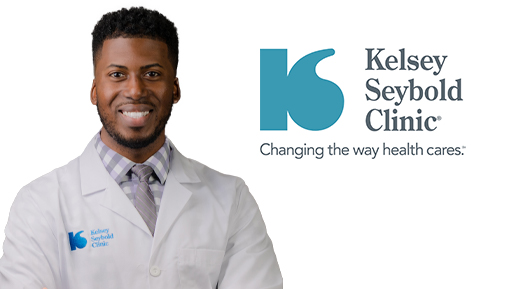
Thyroid Disfunction: Hyperthyroidism vs. Hypothyroidism
The thyroid is a small, butterfly-shaped gland in the lower part of the neck. It produces hormones that help the body use energy, stay warm, govern metabolism, and keep the brain, heart, muscles, and other organs working as they should. Thyroid dysfunction, such as hyperthyroidism and hypothyroidism, may lead to serious cardiovascular and neurological issues if left untreated. However, these issues may be treated and managed when detected early, which is why it’s important to discuss any changes in your health and behavior with a medical provider.
Diagnosis
Physicians rely on thyroid function tests to detect, diagnose, and treat diseases caused by thyroid hormones. Thyroid function tests may include:
- Blood tests (TSH, Free T4, T3)
- Antibody tests
- Radioactive iodine uptake
Hyperthyroidism Vs. Hypothyroidism
Both hyperthyroidism and hypothyroidism can cause an enlarged thyroid that may make your neck look swollen. Both types may be caused by autoimmune diseases and include similar symptoms such as fatigue, depression, changes in mood and energy levels, irregular menstrual cycles, and joint and muscle pain.
Hyperthyroidism and hypothyroidism are more commonly found in women and people over the age of 60. Other risk factors include:
- Family history of thyroid dysfunction
- A diagnosis of another autoimmune disease like Rheumatoid Arthritis, Lupus, Celiac Disease
- Eating foods or taking medicines that contain iodine
- Smoking
- Pregnancy within the past six months
- Previous thyroid issues
- Radiation received to the thyroid, neck, or chest
So, what’s the difference between hyperthyroidism and hypothyroidism?
What Is Hyperthyroidism?
Hyperthyroidism occurs when your thyroid gland overproduces the thyroid hormone, which causes your body to increase your metabolism. One out of 100 Americans ages 12 years and older have hyperthyroidism.
Symptoms of hyperthyroidism include:
- Increased sweating and hot flashes
- Racing heart, arrhythmia, and high blood pressure
- Hand tremors
- Fragile fingernails
- Insomnia
- Weight loss and increased bowel movements or diarrhea
- Hair loss
- Pain/swelling/bulging of the eyes
Patients diagnosed with hyperthyroidism, and other thyroid dysfunction conditions, may be referred to an endocrinologist for treatment and management of symptoms. Endocrinologists have a variety of effective management strategies for treating hyperthyroidism to meet the patient’s specific needs. Depending on your age, symptoms, and medical history, treatments may include:
- Medications (beta blockers or antithyroid drugs (ATDs))
- Radioactive iodine (RAI)
- Surgery
What Is Hypothyroidism?
Hypothyroidism occurs when the thyroid gland underproduces the thyroid hormone, which causes your body to decrease your metabolism. Approximately 5 out of 100 Americans ages 12 years and older have hypothyroidism.
Symptoms of hypothyroidism include:
- Sensitivity to cold
- Slowed heart rate
- Pain, numbness, or tingling sensation in the hands and fingers
- Fatigue or lethargy
- Weight gain and constipation
- Dry skin
- Thinning hair and brittle nails
- Sexual dysfunction and loss of libido
Currently there is no cure for hypothyroidism, but there are medications to control the condition. Synthetic thyroxine pills are typically recommended to bring your thyroid hormone levels back to normal. This process may take time and dosage adjustments before you see any improvements, so it’s important to form a relationship with your endocrinologist and have open communication about how you’re feeling.
Conclusion
Both hyperthyroidism and hypothyroidism are conditions that may cause serious health issues if not detected early and taken seriously. If you are experiencing any of the symptoms described above, it may be time to speak with your primary care provider.
Talk to a Kelsey-Seybold provider today about your symptoms.


